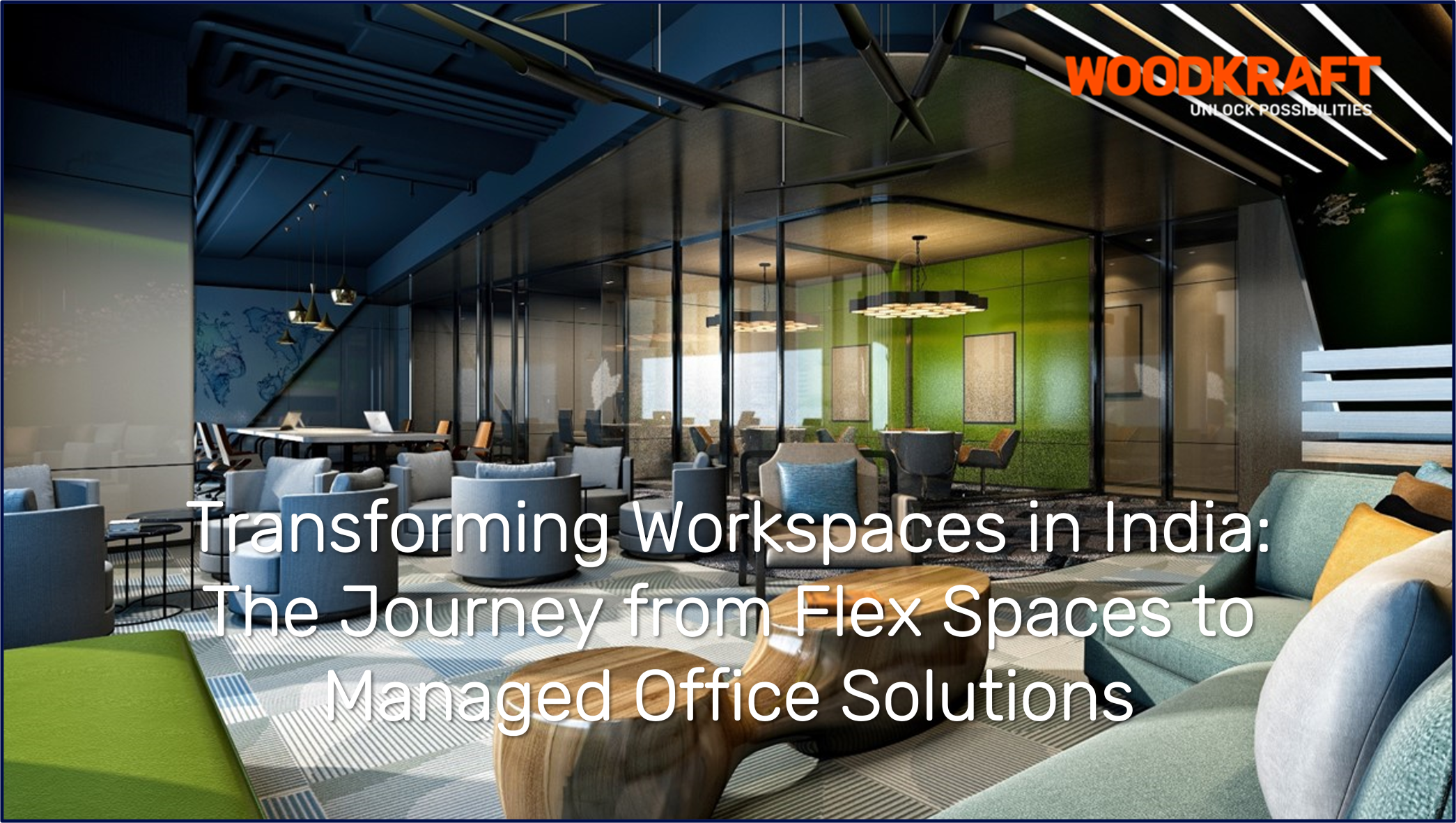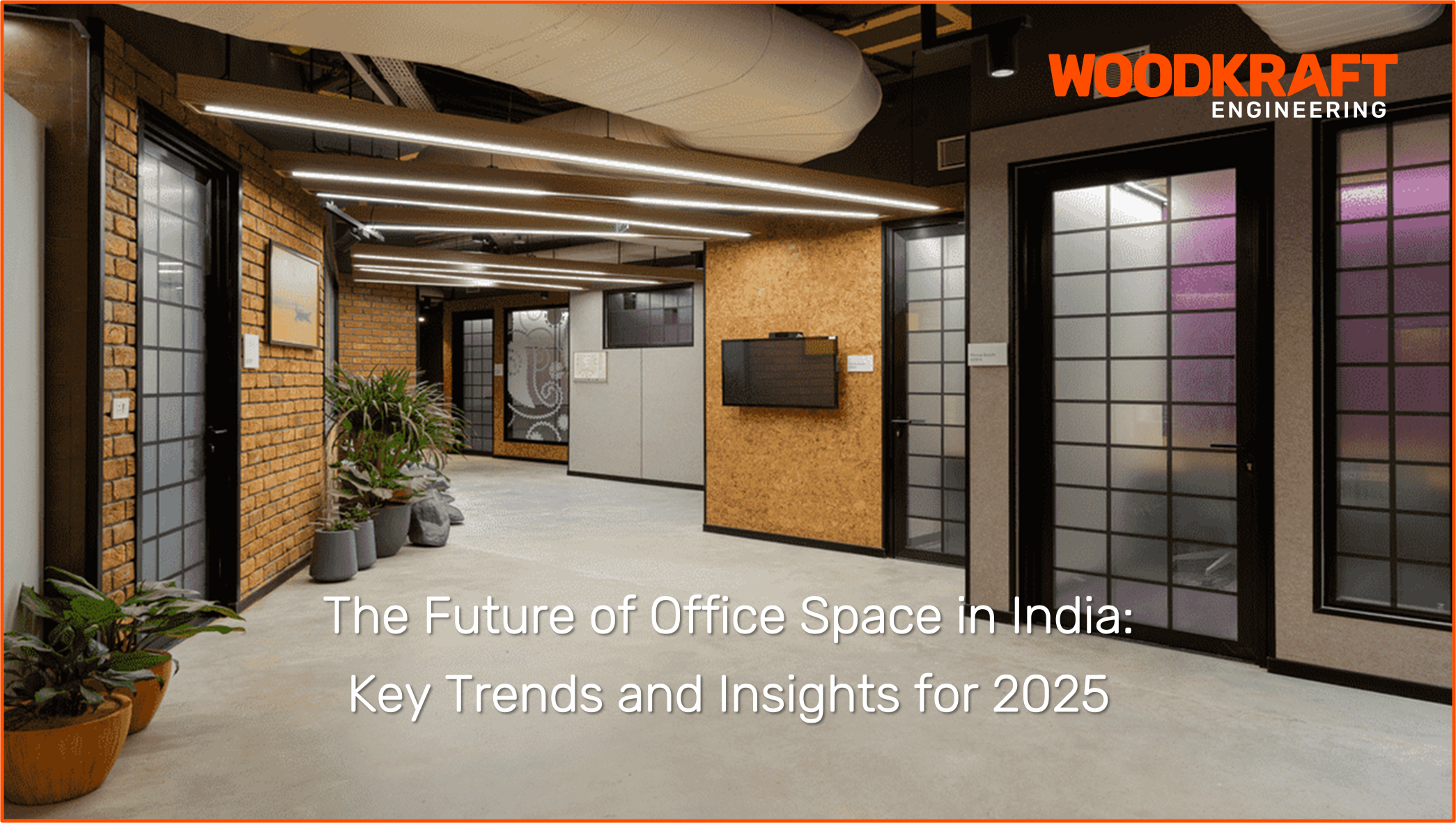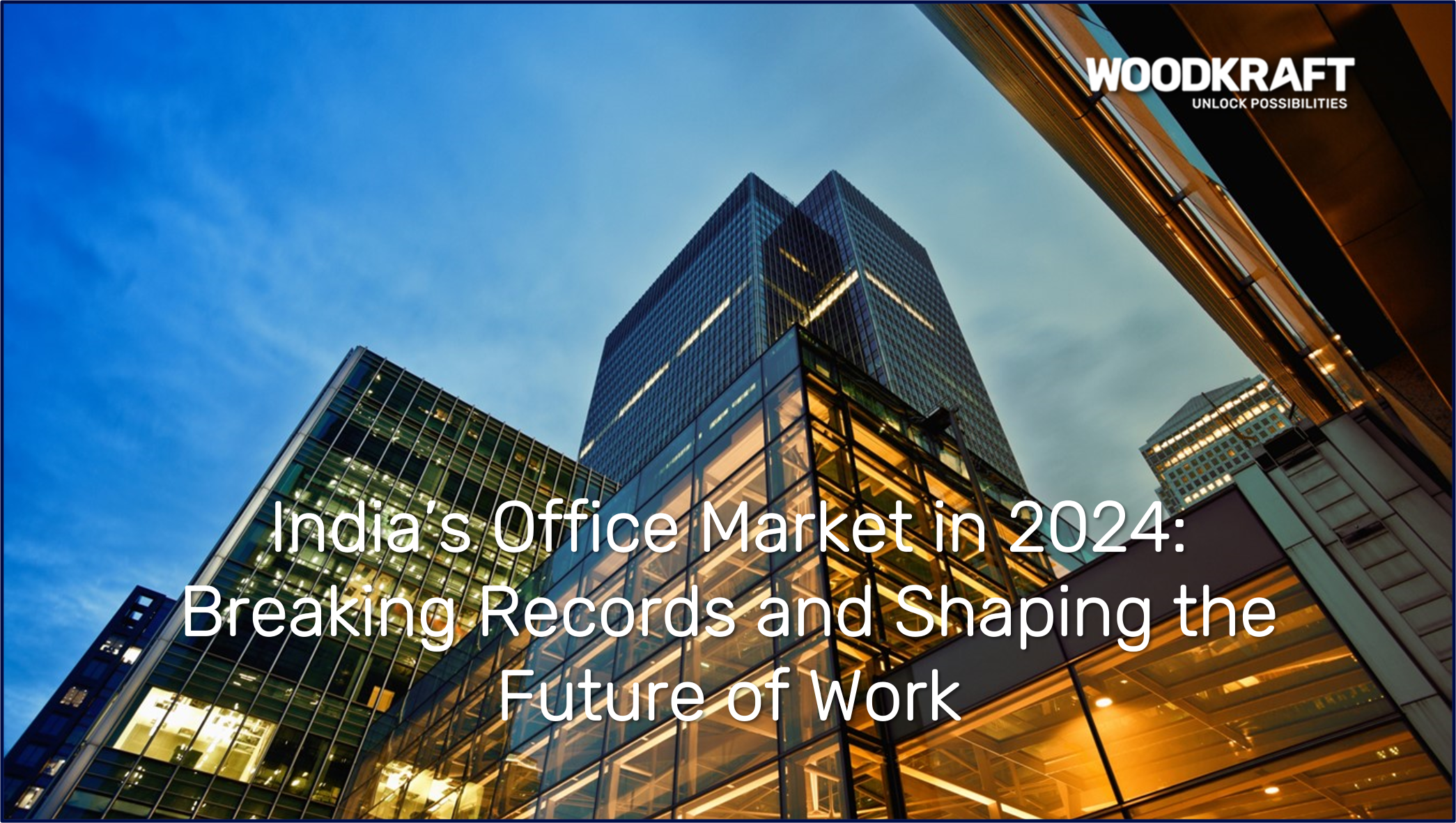BLOGS
Transforming Workspaces in India: The Journey from Flex Spaces to Managed Office Solutions
September, 2024
The Indian office space market has undergone significant shifts over the past decade, evolving in response to changing workforce demands, economic factors, and technological advancements. Flex spaces, once seen as a niche solution for startups and freelancers, have now become a mainstream option for businesses of all sizes, driving a transformation in the commercial real estate landscape. From the early days of coworking spaces to the rise of sophisticated Managed Office Solutions (MOS), the journey of India’s flex space industry reflects the broader shifts in how we perceive workspaces. This article delves into this fascinating evolution and highlights the factors propelling the industry forward.
The Flex Space Boom
The growth of flexible workspaces in India has been nothing short of phenomenal. Over the last decade, the industry has seen a massive expansion, with companies seeking alternatives to traditional office setups. This surge can be attributed to several key factors.
Changing Workforce Dynamics
With the rise of the gig economy, remote working, and freelancing, businesses have increasingly favoured flexible workspaces that cater to the needs of a mobile and agile workforce. Flex spaces provide the flexibility that many modern professionals seek, offering adaptable work environments without the burden of long-term leases or high capital expenditure.
Startups and freelancers were among the first to embrace this trend, lured by the cost-effectiveness and networking opportunities offered by coworking spaces. These early flex spaces, often basic business centres offering private cabins and meeting rooms, soon evolved into vibrant coworking hubs that redefined office culture.
Post-Covid Surge
The global pandemic significantly accelerated the adoption of flex spaces. With companies downsizing their real estate footprints and employees demanding more flexible work options, the demand for coworking spaces skyrocketed. In 2021, more than 85,000 flex space seats were absorbed across India’s top cities, a number that swelled to over 155,000 by 2023, representing a remarkable 35% compound annual growth rate (CAGR).
As businesses shifted from rigid office structures to more fluid setups, the demand for workspace solutions that could scale up or down quickly became more pressing. The flex space industry’s ability to meet this need, coupled with technological advancements enabling remote collaboration, has made it a critical part of the future of work.
The Rise of Managed Office Solutions (MOS)
While flex spaces have reshaped the way we work, the introduction of Managed Office Solutions (MOS) marks the next phase in this evolution. MOS offers businesses a more tailored, premium experience compared to traditional coworking spaces, providing fully managed office environments that are custom-built to meet the specific needs of a company.
What Are Managed Office Solutions?
Managed Office Solutions go beyond offering mere square footage. These solutions are about creating an entire office experience, including everything from ergonomic furniture and high-speed internet to wellness areas and event spaces. For businesses seeking a high-quality workspace without the hassle of managing infrastructure, MOS provides the perfect answer.
MOS providers offer bespoke workspaces in Grade-A buildings with top-tier amenities, ensuring that companies have a seamless, productivity-enhancing environment. These spaces are increasingly popular among large corporations, including Global Capability Centres (GCCs), which seek out local real estate solutions that deliver flexibility, scalability, and cost-effectiveness.
Key Advantages of MOS
- Cost-Effective Setup: One of the main attractions of MOS is the reduced capital expenditure. Businesses can avoid the hefty costs associated with traditional office setups, including infrastructure, furnishing, and maintenance. Instead, they pay a fixed fee for a ready-to-use office.
- Enhanced Flexibility: MOS providers typically offer shorter lease terms than traditional office spaces, allowing companies to scale their operations quickly and efficiently.
- Premium Facilities: With access to high-end amenities such as meeting rooms, event spaces, and community events, businesses in MOS facilities enjoy a work environment that promotes both productivity and collaboration.
- Technology Integration: MOS spaces are often equipped with cutting-edge technology, from smart access control systems to occupancy sensors. This makes managing office logistics seamless and enhances the overall user experience. For instance, employees can book meeting rooms via an app or adjust lighting and air conditioning with a few taps on their phone.
Impact on the Flex Space Industry
The rise of MOS has had a significant impact on the broader flex space industry. It has led to a consolidation of the market, with larger operators acquiring smaller flex space providers to offer more comprehensive solutions. MOS has also heightened the competition for premium office spaces, particularly in India’s major cities, as companies seek Grade-A buildings with the best amenities and infrastructure.
Increased Demand for Premium Spaces
As MOS providers focus on delivering high-quality office experiences, there has been an uptick in demand for premium office spaces. These spaces offer more than just a place to work; they provide a holistic environment that fosters collaboration, creativity, and productivity.
Attracting Global Corporations
MOS has proven especially appealing to multinational companies, particularly those operating Global Capability Centres (GCCs). India is a hub for GCCs, and these corporations increasingly rely on MOS providers to deliver tailor-made office solutions that meet their operational needs while also reducing their capital expenditure.
Enhanced Tenant Experience
MOS spaces are not just about aesthetics; they focus on creating a superior tenant experience. Providers often curate a sense of community through networking events, wellness programmes, and collaborative initiatives, all aimed at fostering a dynamic and productive workspace. This focus on tenant well-being and satisfaction differentiates MOS from more traditional coworking spaces.
Key Data and Market Trends
The Indian flex space market is on an impressive growth trajectory, and MOS is at the forefront of this expansion.
- Market Size: The flexible workspace market in India is projected to reach USD 3.04 billion by 2029, with a CAGR of 35% from 2021 to 2023.
- Geographical Distribution: Bengaluru continues to lead in terms of flex space availability, followed by key markets such as Delhi NCR, Pune, Hyderabad, and Mumbai.
- Sectoral Demand: The IT sector is the dominant player driving demand for flex spaces, followed by industries such as Engineering & Manufacturing, BFSI (Banking, Financial Services, and Insurance), and Professional Services.
- Operator Growth: There are now over 300 active flex space operators in India, with the top 5% controlling more than half of the Grade-A stock.
Future Outlook
The future of India’s flex space industry looks promising. The shift towards more flexible working models, driven by the continued rise of remote work and the focus on work-life balance, is expected to fuel further demand for flex spaces and MOS. As companies increasingly prioritise adaptability and scalability in their office environments, MOS will play a key role in meeting these evolving needs.
With foreign investment pouring into the sector and new players entering the market, the growth of India’s flex space industry shows no signs of slowing down. Managed Office Solutions are not just a passing trend but a long-term solution for businesses looking to optimise their workspace experience while keeping costs under control.
Conclusion
The evolution of India’s flex space industry from traditional coworking environments to high-end Managed Office Solutions is a testament to the changing demands of the modern workplace. As companies continue to seek flexibility, cost-effectiveness, and premium experiences, MOS will remain at the cutting edge of this transformation, helping businesses navigate the complexities of today’s work environment. The journey from flex spaces to MOS is far from over, and as the industry continues to evolve, it will undoubtedly shape the future of work in India for years to come.
Note: This article offers our unique take on the evolving trends highlighted in the Cushman & Wakefield and Table Space report ‘From Flex to Managed: Evolution of the Flex Space Industry,' providing insights tailored to today’s workspace demands.
Stay inspired, stay informed, and stay connected with Woodkraft.
Follow Woodkraft on LinkedIn for the latest updates and inspiring workspace solutions.






